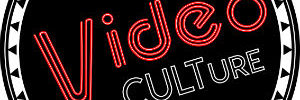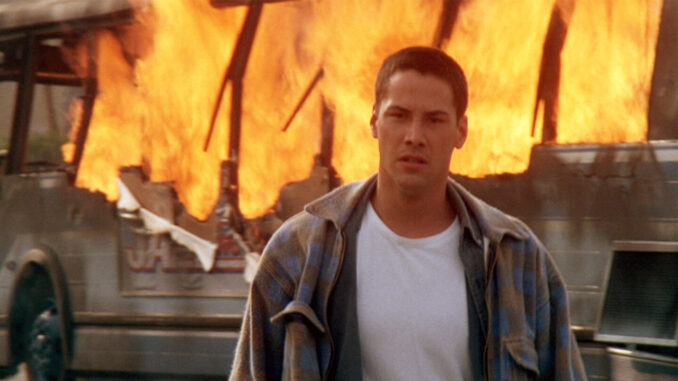
“Staff Picks” is a deeper look into movies that we love here at Video CULTure. Each edition of this column will focus on a single film that we think you should check out, either for the first time or for a long-overdue revisit
By Patrick Bartlett (Twitter: @alleywaykrew)
Of all the “Die Hard” knockoffs, I can say with very little hesitation that my favorite of the “Die Hard in/on a ___” films, “Speed” is my favorite. I literally watched a movie last year that was so bad and so boring that it made me question whether or not I still liked movies. To test that question, I watched “Speed”. My reaction was relief that, yes, I do still like movies. This one especially. “Speed” is interesting because it’s a rather unique film even though it’s inherently derivative in the sense that it’s following the mold of “Die Hard”. Still, it manages to stand completely apart from the films like it, and many action films in general, in that it takes all these pieces that shouldn’t fit together and yet somehow end up doing just that. It’s following in a tradition while simultaneously branching out in unexpected directions. “Speed” is just a masterfully constructed film.
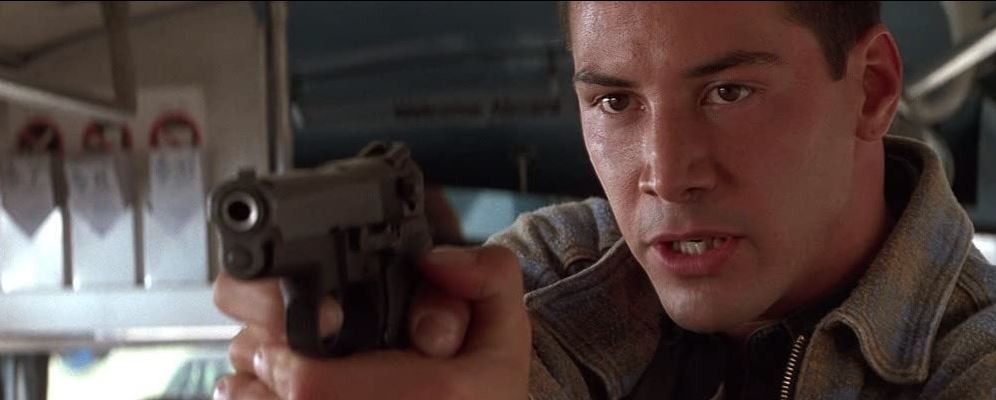
I’ve said before and I’ll say it again: the ’90s were a weird time in film. Especially genre film. Studios didn’t know what the hell to do. People seemed to be moving away from genre and towards independent film. As a result, in some cases, you ended up with a movie like “Speed”. Written originally by Graham Yost and rewritten heavily by an uncredited Joss Whedon, tonally, it manages to find a balance between something akin to a character-driven independent film and a traditional “balls out” action picture. It seems impossible but it works because of the writers’ different approaches. Apparently, in Yost’s hands, it was a more straight-ahead action movie… complete with requisite one-liners to punctuate action beats and everything else you’d probably think of when thinking of movies of the time. When Joss Whedon was brought onboard by director Jan de Bont a week before shooting, he rewrote basically all of the dialogue and also rewrote the main character of Jack Traven from being a traditional hotshot action hero to being “the polite guy trying not to get anybody killed”. The last part of that is a big part of what sets this film apart, even decades after the fact. I’ve noticed upon rewatching the ’80s action movies I grew up on… the leads are pretty much all sociopathic. Not only do you have stuff like Schwarzenegger impaling a guy to a pillar as a setup for a “stick around” one-liner, in the aforementioned “Die Hard”, there’s one-liners a also Bruce Willis’ character desecrating corpses to amuse himself. Sure, it’s fun but it’s also super weird when looked at objectively. However, even without that stuff, there manages to be a lot of humor in Joss Whedon’s shooting script without it coming from an inhuman place. It’s refreshing that there’s never a question about the priorities of the Jack Traven character that despite him being an unorthodox loose cannon (because of course he is), everything he’s doing is in the name of doing police work and saving lives.
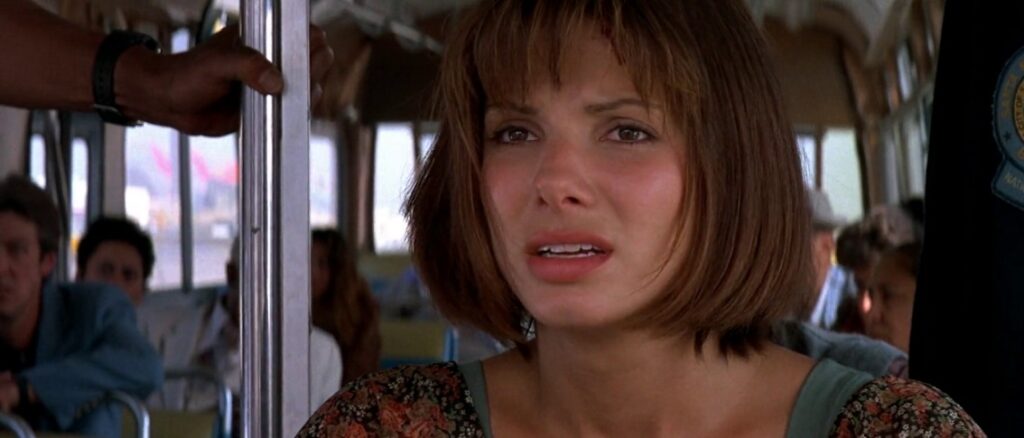
Admittedly, a large part of that is Joss but it’s also solidified by Keanu Reeves’ performance. Reeves had come a long way from his debut as an action star in my beloved “Point Break” a few years prior. He can definitely still be wooden but he also brings a humanity to the her of “Speed” while also letting him be completely beliavable as everything you’d expect from an action hero. In addition to Reeves, Sandra Bullock’s star making performance still doesn’t get enough credit. Her character is as integral to the film as Reeves’, which is honestly maybe the most refreshing part of the entire movie. A lot of genre stuff is admittedly very male-oriented, which means female characters often end up as essentially prizes to be won by the male lead for a job well done…which is pretty gross if we’re being honest. In this case though, Bullock’s character of Annie as the reluctant replacement driver of the bus feels just as important to every part of the film as Reeves’ character does. As a result, their burgeoning love story doesn’t feel tacked on. It’s an integral part of the film.
I suppose I can’t really go any further without going into the plot but anyone that isn’t aware of it in this day and age really should just take the ride… but since we’re already here, let’s get into it. Basically, things begin with the aforementioned Jack Traven arriving with his partner, Harry Temple, and the rest of LA’s SWAT team to a building where a group of people in an elevator are being held for ransom by a mad bomber. Said bomber ends up having his plan foiled by Jack and Harry and the bomber seeks revenge. That revenge takes the form of a second ransom plot, this time aimed directly at Jack, with a bomb on a city bus. When the bus hits 50 miles per hour, the bomb becomes armed. If it drops below 50, it blows up. The city has a few hours to get millions to the bomber and in the interim, Jack is trying to work within the rules of the bomber’s game to keep the bomb from exploding and everyone on the bus alive. That’s pretty much as far as I can go without spoiling things and if you haven’t seen the film, you deserve to go in unspoiled, and if you have…well, you know what happens anyway.
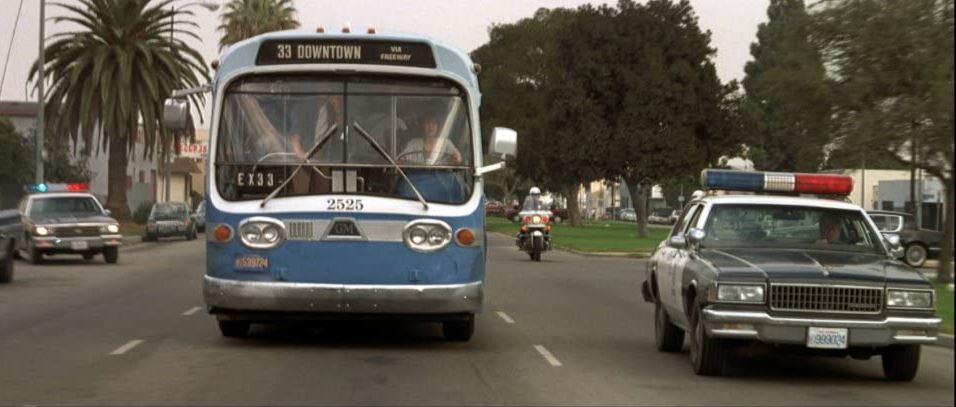
The most important characters that have yet to be spoken about are Jeff Daniels’ character of Harry Temple and the mad bomber, played by Dennis Hopper. In the original script, they were the same character and to be played by Ed Harris. When Jeff Daniels ended up being cast, nobody really wanted or believed that people would accept Daniels being revealed as the villain. It’s very much a Gizmo in “Gremlins” situation in that respect and just like that, the film is all the better for it. Jeff Daniels as the decent, quippy angel on Reeves’ shoulder and brains to his brawn. Dennis Hopper as the guy who is recognizable as at one time being a perfectly honorable guy that eventually just snapped and is now the devil of the story that Jack Traven is caught in the middle of. Hopper especially deserves to be singled out for praise as one of the great action movie villains. He’s just so fun to watch. With Reeves playing such a human character, it gives Hopper the opportunity to chew on every piece of scenery available and the film is all the better for it.
It’s all brought together by Jan de Bont. He may have had an advantage by being the cinematagrapher on “Die Hard” but “Speed” is de Bont’s first directorial effort. It’s also unquestionably his greatest film. Nothing else has ever come close. Having said that, if he had to blow his wad on his first time out of the gate, he at least managed to make a classic in the process. I’ve already talked about the cast and the script and they’re definitely some of the major strengths and secret weapons of the film but in the end, the reason the movie works is because of de Bont’s understanding of pacing. It’s just a perfectly paced film. Much like the bus itself, “Speed” just keeps barreling forward. In fact, it’s paced fast enough that the story almost happens in real time and that makes the stakes in every second of its runtime absolutely palpable.
“Speed” is very much a 90s movie but I mean that in the best possible way. It owes a huge debt to the action cinema of the decade that preceded it but is also a product of a time when audiences wanted character-driven stories and we somehow get a movie like this, which has a foot in each of these disparate worlds. An insane situation in a heightened reality with people who seem like you might actually have met on a trip to Los Angeles in 1994. There’s really nothing else like “Speed”.
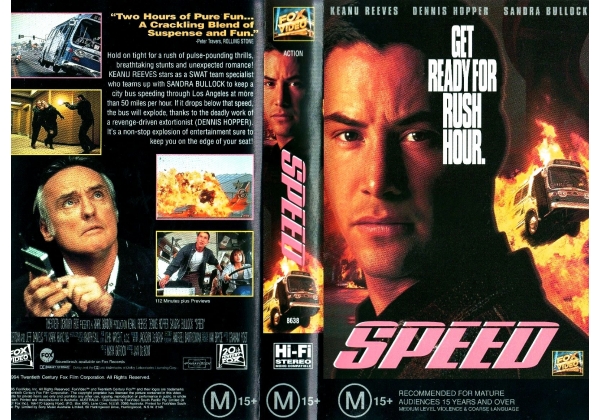
To find out where this film is available to stream, click here: Just Watch
